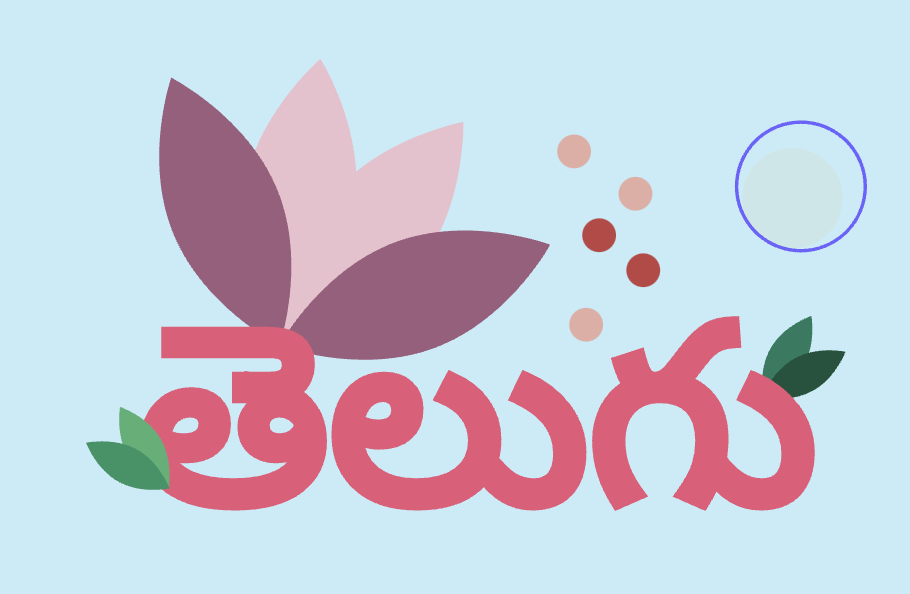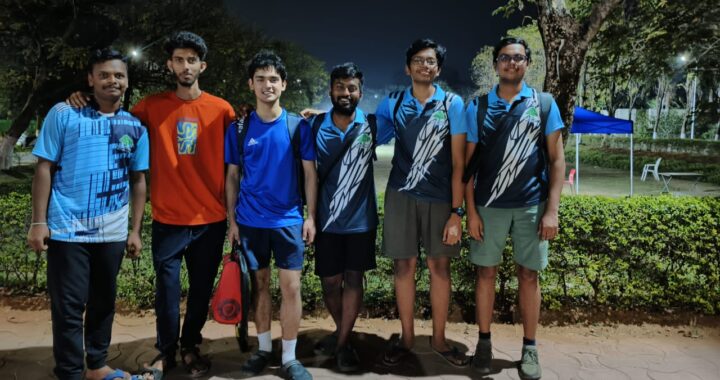Introduction to Telugu

Hi there! Most of you are new to Hyderabad, and moving to a new place can be a daunting prospect. That isn’t even considering the fact that you’re joining after two years of grueling preparation for various entrance exams, and are about to meet a whole new bunch of people – possibly for the first time in your life – who are going to become an integral part of your existence at IIITH. So how about a crash course in some basic Telugu, to make the transition easier? Let’s get started, eh?
- Ela Vellali (ɛla ʋɛlːalɪ) – How to go? — airport ki ela vellali [How to go to the airport?]. Much better used in context of DLF or OBH. Bonusː use ‘vellandi’ (ʋɛlːanɖɪ) when you want to ask someone to go somewhere. e.g. IIITH vellandi (Head to IIITH, please).
- Entha (ɛnt̪aː) — How much? – oreo shake entha [How much for the oreo shake?]. PSAː Don’t ask your friends this after an exam paper showing. Any enemies you may happen to make, however, are fair game. Do what you will unto your enemies. But keep in mind what wise men have said – f*ck around, find out.
- Cheyyi (tʃeyːɪ) – do – payment cheyyi, parcel cheyyandi. Not much to say here. Do not make ‘your mom’ jokes. They don’t work with cheyyi. There are other ways of saying it. No, we’re not going to tell you here. (Meet me in the back, and don’t tell anybody). Cheyyi also means ‘hand’, by the way.
- Ivvu (ɪʋːu) – give – Phone ivvandi [Phone dijiye]. Using a Hindi example here to better illustrate the fact that the suffix -andi (anḍɪ) indicates respect or plural addressees. Analogous to -ijiye in Hindi. You can attach it to the end of any verb. e.g. kurcho/kurchondi (baitho/baithiye). Now that that’s out of the way, here’s another nugget for you – ra means ‘come’ in Telugu, and as we’ve already mentioned, -andi is the respect marker. Hindi speakers who haven’t been living under rocks should have a field day with this. In case you don’t speak Hindi – well, this is the perfect opportunity to go talk to a batchmate (or even a senior – they’re not all scaryǃ) who does.
- Thinu (t̪ɪnu) – Eat – May not be very useful by itself, but its derivatives thinnara/thinnava (did you eat?) are perfect for making small talk with the staff and guards around campus.
- Aipoyindi (aɪ
̪pojɪnd̪ɪ) – Finished/Done – no use coming to class now, attendance aipoyindi. This is honestly the best use of aipoyindi I have seen. We are not open to comments on this one. - (naaku) Telugu raadu (naːku t̪ɛlugu raːd̪u) – The Telugu equivalent of “(mujhe) Hindi nahi aati”. To be frank, this is the only phrase you’ll end up using. IIIT – and Hyderabad in general – is a fairly cosmopolitan place, so you can usually get by if you know English and/or Hindi – although knowing the local language is always a plus.
This should be enough to get you started. Obviously it isn’t possible to cover every single phrase you’ll end up hearing (also I don’t get paid to write this, so…) but consider this a starter pack of sorts. We were unable to publish some of the, ahem, spicier phrases here, but you might hear them around campus, so keep your ears open. Probably your eyes, too. Just in general. It’s a good idea. Keeping your eyes open when walking around campus. Profound wisdom, I know. That’s all for now, and see you later. Thanks

 Qu’ils mangent de la grenouille! (Let Them Eat Frogs!)
Qu’ils mangent de la grenouille! (Let Them Eat Frogs!)  Tale of Two Cheenties
Tale of Two Cheenties  Peace of mind.
Peace of mind.  Boats and Valorant
Boats and Valorant  Blessings
Blessings  Shivering in the sunlight
Shivering in the sunlight  A perspective on sports in IIIT
A perspective on sports in IIIT  Paintings of IIIT
Paintings of IIIT  The Tale of Jagruti
The Tale of Jagruti  Cleaning up the Mess?
Cleaning up the Mess?
Aaa bongu ley